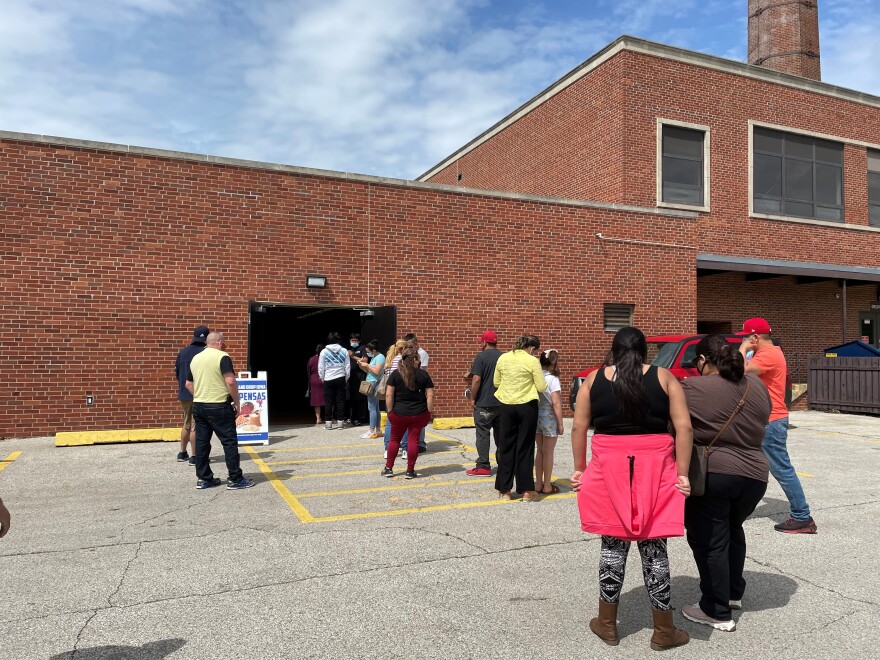Knock and Drop Iowa first started delivering food to Latino families in need around central Iowa last year. It regularly serves about 250 families per week.
Its volunteers still serve by handing out food, but now they’ve added more to their list. They’re using their platform for COVID-19 vaccine outreach.
Founding director Zuli García worked with advocacy organization Latinx Immigrants of Iowa, who set up the event. They partnered with Hy-Vee as well as individuals from the University of Iowa for the vaccination events.
"I thought, why not? It would be an amazing thing to do for our community. I already have that platform. And I thought, you know, we already have people coming in here, let's just use it and offer it," García said about the partnership. She gestured around the room in Des Moines' former Franklin Junior High.
The first vaccination clinic García ran helped administer more than 250 vaccines to Spanish-speakers, as well as other people seeking the vaccine. She ran the second one on Wednesday, which was mostly open for the second dose of the Pfizer vaccine. A line of people waiting to sign in stretched out the door.
The clinic also provided first doses for children ages 12 to 15, which were recently added to the list of authorized populations to receive Pfizer's vaccine.
García said earning trust in the community has helped reach more people during an unsettling time.
“And so for our community where they feel, you know, can I trust that person? And the language barrier, it feels more safe when they come and see faces that they already see on a daily basis helping them anyways. So for them coming here was like, not a big deal," she explained.
Mercedes Hernandez was one of the Spanish-speakers Knock and Drop reached. She sat in the waiting room filled with food as she waited the recommended15 minutes after receiving her vaccine.

"I'm here especially to take care of our health," Hernandez said in Spanish. "Don't be afraid. It's simple, sensible and it's for the wellbeing of all humanity. If we all cooperate, we will have a better future."
She brought along her friend Jeffrey Duede, who only speaks "un poco" (a little) Spanish. Duede described Hernandez as his "hermana," or sister.
"I think it's great. And I see a lot of people that are volunteering and trying to help their communities they live in. I think it's a very good thing," Duede said. He was also waiting his 15 minutes.
He said people people like Knock and Drop founder Zuli García, are filling in the gaps for communities in need.
“They tend to gravitate to what the main needs or priorities are. And I think that she probably felt that this was very important for the people, just like food is for some people who have issues with food," Duede said.
García, who ran around the clinic translating, directing clients and checking forms, said she received "a ton" of positive feedback from her community "because they wanted a place where they felt safe, they wanted a place where they felt like home."

The clinic workers do not ask for social security number or proof of U.S. citizenship. And that's something García was sure to be very open about. She recommended all vaccine clinics be as transparent as possible.
"When you are just upfront, and you're honest with our community and say, 'Hey, you may go to a clinic, and they may ask you for insurance. They may ask you for ID, but none of it is actually required," she said.
García said she hopes organizations and leadership throughout Iowa continue to team up to make sure everyone who wants a COVID-19 vaccine can get one.





